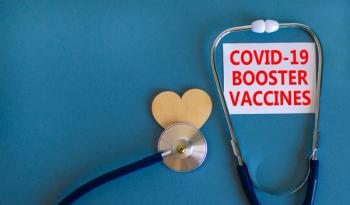
Moderna, Johnson & Johnson Booster Vaccine in Discussion and Criteria of FDA Approval
The FDA released information on booster shots for the Moderna and Johnson & Johnson COVID-19 vaccines before their public meeting that begins Thursday.
The Food and Drug Administration released information Tuesday on booster shots for the Moderna and Johnson & Johnson COVID-19 vaccines before their two-day public meeting that begins Thursday.
This news follows after the FDA's action on Pfizer-BioNTech's booster application in September. Moderna is seeking authorization of a booster dose of its vaccine on the same terms.
The Moderna booster would be for people 65 and older, those ages 18 to 64, those at high risk for severe COVID-19 and people 18 to 64 whose institutional or occupational exposure put them at risk for severe COVID-19.
Moderna's COVID-19 vaccine booster is half the dose of the initial shots used in its two-shot vaccination — 50 micrograms of mRNA versus 100 micrograms, according to documents shared by the FDA.
A
Jim Shehan, senior counsel and chair of the FDA Regulatory Practice Group of law firm Lowenstein Sandler, shared the criteria the FDA examines when evaluating the safety and need for a booster shot.
The criteria usually falls under two different categories: the safety of the product if it were to cause adverse reactions and how severe are those adverse reactions.
"Vaccines are relatively high thresholds for safety," Shehan said. "The need for an additional shot is a question of efficacy and benefit risks."
He added boosters are common. For example, people get tetanus shots every 10 years. The flu and the SARS-CoV and diseases call for a couple shots at childhood and no additional shot is needed. However, for viruses like the flu or COVID, these forms of a cold can mutate more, leading to the possibility of an additional shot.
Newsletter
Get the latest industry news, event updates, and more from Managed healthcare Executive.























